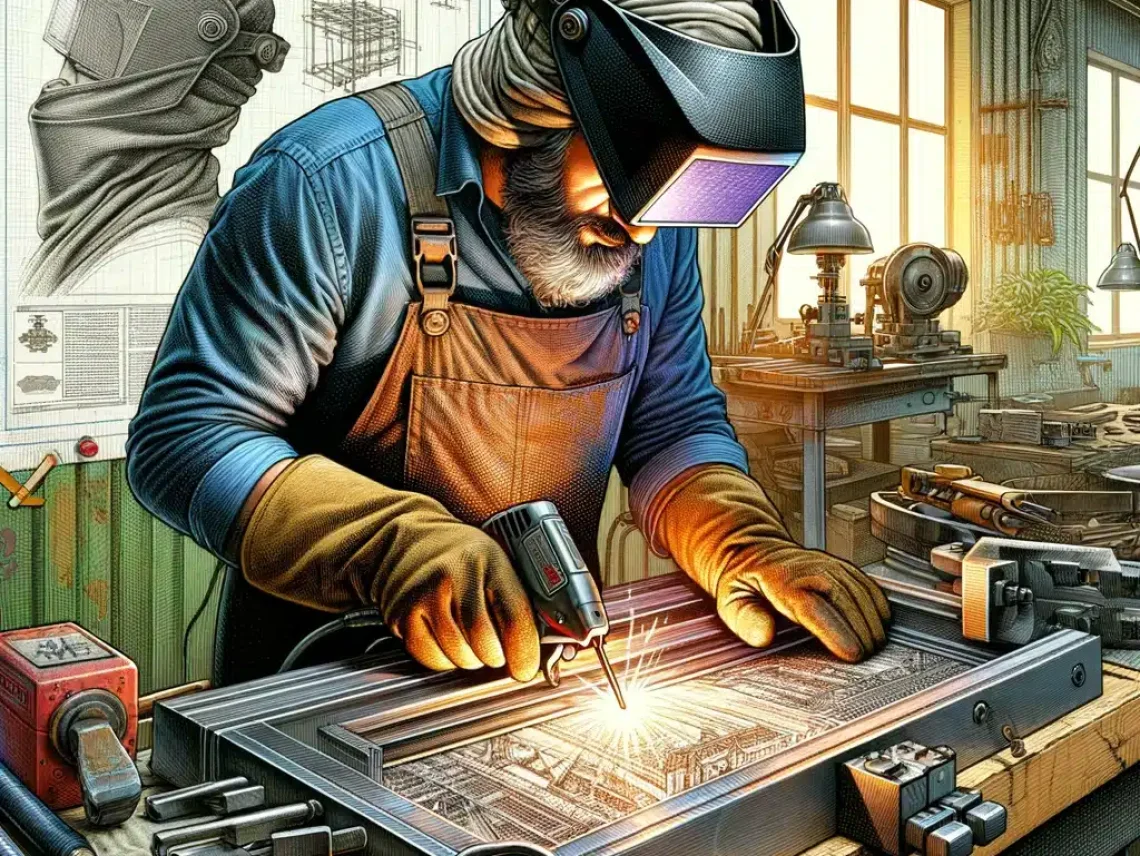
Table of Contents
ToggleWelding is an essential trade in various industries, ranging from construction to aerospace. Different types of welding jobs offer unique opportunities based on skill levels, specializations, and industries. Some welding jobs are high-paying, especially those that require specialized techniques or work in high-risk environments.
In this article, we’ll explore the most lucrative welding specializations, how to get started in each, and the potential earnings that come with them.
Underwater welding is one of the highest-paying welding specializations in the world. Underwater welders are often employed to repair structures like bridges, pipelines, and oil rigs submerged underwater. This profession combines commercial diving with welding, making it both lucrative and demanding.
Inland Welding: $25–$60/hour, $50,000–$125,000/year
Offshore Welding: $75–$300/day, $100,000–$200,000/year
Saturation Diving: $1,000–$1,500/day, $200,000–$300,000/year
Learn more about underwater welding careers and how to get certified.
Entry-Level: $50,000–$75,000/year
Experienced: $80,000–$150,000/year
Top-Tier: $185,000+/year
Discover more about pipeline welding jobs and its growing demand in the energy sector.
Aerospace welding involves working with high-performance alloys to create parts for aircraft, rockets, and other aerospace technology. This highly specialized welding job requires expertise in welding thin, lightweight materials and is typically done in clean, controlled environments.
Entry-Level: $50,000–$70,000/year
Experienced: $80,000–$100,000/year
Top-Tier: $100,000+/year
Learn more about the Aerospace welding process and the role it plays in modern aircraft construction.
Nuclear welding involves creating and repairing welded joints in nuclear power plants, where precision and safety are paramount. Welders in this field must adhere to strict industry regulations and work with complex materials that withstand high levels of radiation..
Entry-Level: $60,000–$80,000/year
Experienced: $90,000–$120,000/year
Top-Tier: $120,000+/year
Check out nuclear welding certifications to understand the skills needed in this high-demand field.
Certified Welding Inspectors (CWIs) do not perform the welding but instead inspect and ensure that welding is done according to industry standards and specifications. They work across all sectors, including construction, oil and gas, and manufacturing.
Entry-Level: $50,000–$70,000/year
Experienced: $80,000–$100,000/year
Top-Tier: $100,000+/year
Learn more about becoming a Certified Welding Inspector and the training process involved.
Welding offers numerous career paths, each with its own potential for high earnings and career growth. Specializing in high-demand fields such as underwater welding, pipeline welding, or aerospace welding can increase your income significantly. Whether you’re just starting your career or looking to specialize further, there are opportunities in welding that provide both financial rewards and job satisfaction.
Choose your path wisely, get the proper training and certifications, and start earning the high wages that come with being an expert welder in your chosen field.
Most inland welders earn $25–$60/hr ($50k–$125k/year). Offshore welders can make $75–$1,500/day, often exceeding $200k annually.
Deeper dives (100+ ft) earn depth pay, often adding $1–$4 per foot beyond the threshold.
AWS D3.6M, ADCI Commercial Diver Certification, and CSWIP 3.1U can raise earnings by 20–40%.
Welders engaged in pressure vessel fabrication often pursue certifications to demonstrate their expertise and adherence to industry standards. Essential certifications include ASME Section IX for welding processes, ASME Section VIII for pressure vessel construction, and API 510 for inspecting and maintaining pressure vessels. These certifications ensure that welders are well-versed in the specific requirements and safety protocols associated with pressure vessel work.
Welding pressure vessels requires meticulous attention to safety. Key considerations include understanding material properties, proper joint preparation, meticulous welding techniques, and adherence to welding procedures outlined in industry codes and standards. Additionally, welders must be aware of potential hazards such as high temperatures, pressure, and the materials being used to ensure a secure and durable weld.
The choice of welding method plays a crucial role in pressure vessel fabrication. Common methods include Shielded Metal Arc Welding (SMAW), Gas Metal Arc Welding (GMAW), and Flux-Cored Arc Welding (FCAW). Each method has its advantages and limitations, and the selection depends on factors such as material type, thickness, and the specific requirements of the pressure vessel design. Welders must be proficient in various methods to adapt to different project needs.
Welding Specializations: Some of the highest-paying welding jobs include underwater welding, pipeline welding, and aerospace welding.
Income Potential: With experience and certifications, welders can earn between $50,000 and $300,000+ annually in specialized fields.
Pathways for Career Growth: Specializing in a high-demand welding field, such as nuclear welding or certified welding inspection, can significantly boost earning potential.
Table of Contents
ToggleIn the realm of industrial solutions, Red River emerges as a pioneer, offering a diverse range of custom-engineered products and facilities. Among our specialties is the design and production of Custom/OEM Pressure Vessels, meticulously crafted to meet individual client requirements, ensuring performance under various pressure conditions. Our expertise extends to the domain of prefabrication, where Red River leads with distinction.
The company excels in creating prefabricated facilities, modules, and packages, reinforcing its stance as a forerunner in innovation and quality. This proficiency is further mirrored in their Modular Skids offering, where they provide an array of Modular Fabricated Skid Packages and Packaged equipment. Each piece is tailored to client specifications, underlining their commitment to delivering precision and excellence in every project they undertake.